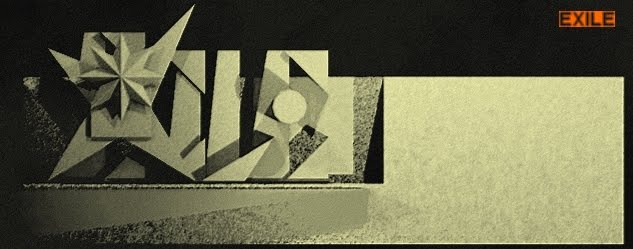All human beings are born free and equal in dignity and rights. They are endowed with reason and conscience and should act towards one another in a spirit of brotherhood.
(Article 1 of the Universal Declaration of Human Rights in Burmese)
No one shall be subjected to arbitrary arrest, detention or exile.
Article 9:
Burma is known as a golden land made of several ranges (or ‘Yoma’ in Burmese) where thousands of tribal memories, wisdoms, religions, cultures and beauties of plants and animals dwell. The rivers, all of them are indeed important to the people and other existences, snake through these beautiful mountainous regions and flow from the north to the south where Indian Ocean is. The peoples, Burma has 103 ethnics, all of them used to be really generous and all they knew was to give.
Since the modern day’s dictators have systematically destroyed, now the golden land is famous for its narcotic trades, refugees, migrant workers and various atrocities and sufferings.
One day, we’ll be free again and the land will be again famous for its beauty.
Pages
Overturning the bowl
Overturning the bowl is a symbolic phrase signifying the refusal to accept offerings from a particular person. The origin story for this transaction is
a variation on the origin story for Sg 8. The followers of Mettiya and Bhummaja incite Va.d.dha the Licchavi to accuse Ven. Dabba Mallaputta of having raped his wife. (They show no imagination at all and instruct him to phrase his accusation in the same terms they taught Mettiyaa Bhikkhunii in the story to Sg 8: "The quarter without dread, without harm, without danger, is (now) the quarter with dread, with harm, with danger. From where there was calm, there is (now) a storm-wind. The water, as it were, is ablaze. My wife has been raped by Master Dabba Mallaputta." ) The Buddha convenes a meeting of the Community, at which Ven. Dabba (who attained arahantship at the age of seven) states truthfully that, "Ever since I was born, I am not aware of having engaged in sexual intercourse even in a dream, much less
when awake." The Buddha then instructs the Community to overturn its bowl to Va.d.dha, so that none of the bhikkhus are to have communion with him. (This, according to the Commentary, means that none of the bhikkhus are to accept offerings from his household.) Ven. Ānanda, on his alms round the following day, stops off at Va.d.dha's house to inform him that the Community has overturned its bowl to him. On hearing this news, Va.d.dha collapses in a faint. When he recovers, he goes with his relatives to confess his wrong doing to the Buddha. The Buddha accepts his confession and tells the Community to turn its bowl upright for Va.d.dha, so that the bhikkhus may associate with him as before.
The Community, if it wants to, may overturn its bowl to a lay person endowed with the following eight qualities: He/she
strives for the bhikkhus' material loss,
strives for the bhikkhus' detriment,
strives for the bhikkhus' non-residence (i.e., so that they can't live in a certain place),
insults and reviles bhikkhus,
causes bhikkhus to split from bhikkhus;
speaks in dispraise of the Buddha,
speaks in dispraise of the Dhamma,
speaks in dispraise of the Sa"ngha.
The Commentary adds that a lay person who has done any one of these things qualifies to have the bowl overturned. There is no need for him/her to have done all eight.
Unlike other disciplinary transactions (and unlike most Community transactions in general), the object of the transaction does not need to be present in the meeting at which the transaction is performed. This is apparently what the Commentary means when it says that the transaction may be performed within or without the territory. In other words, the lay person does not need to be in the same territory where the meeting is held.
The procedure is this: The Community meets and agrees to the transaction statement, which (in a motion and proclamation) explains the lay person's wrong doing and announces that the Community is overturning its bowl to him/her, that there is to be no communion between him/her and the Community. (The word for communion, here as elsewhere, is sambhoga, which literally means "consuming together" or "sharing wealth." An interesting anthropological study could be written on the implications of this word's being used to describe a bhikkhu's accepting alms.) The Commentary adds that the Community should then inform other Communities that they, too, are not to accept alms or offerings from the household of the lay person in question. And, as the origin story shows, the lay person should be informed of the transaction.
If the lay person mends his/her ways (in other words, stops doing the action for which the bowl was overturned in the first place and does not start doing any of the other actions that are grounds for overturning the bowl) the Community may then turn its bowl upright. The procedure here is that the person in question dresses respectfully, goes to the Community, bows down, and with hands palm-to-palm over the heart makes a formal request to have the bowl turned upright. The Commentary adds that the person should state the request three times and then leave the hatthapaasa of the Community's meeting while the transaction statement uprighting the bowl is recited, although there is nothing in the Canon to indicate that this last step is necessary. After the recitation, the bhikkhus may again accept offerings at the person's house. None of the texts mention this point, but the Community would seem honor bound to notify any of the other Communities who were
informed of the bowl's original overturning that the bowl has now been set upright.


No comments:
Post a Comment